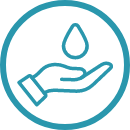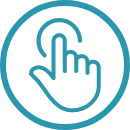
For households who think they may have possible coronavirus (COVID-19) infection, below are the key information points. Detailed information can be found at
https://www.gov.uk/government/publications/covid-19-stay-at-home-guidance
People with coronavirus symptoms should NOT go into a pharmacy (or GP surgery/hospital) and don’t need to notify 111 that they are self-isolating. If symptoms are getting worse, or do not get better after 7 days, use 111 NHS online. Only call 111 if there is no internet access.
The elderly or those with underlying health conditions should be moved out of the house to be with friends/family. If they cannot be moved, stay away from them as much as possible (distance of 2 metres, sleep separately, if possible use separate bathroom, use separate towels, don’t use the kitchen at the same time).
At present there is no evidence that animals such as cats and dogs can be infected.
No visitors should come into the house.
If you have had symptoms, you can end the self-isolation after 7 days (from the day you first became ill) if you are feeling better and no longer have a temperature. If living with others, the whole household can end isolation after 14 days. If other members of the family become ill, the person with new symptoms has to stay at home for a further 7 days. The 14 days does not start again for all the family.
A cough may persist for several weeks despite the coronavirus infection having cleared. A persistent cough alone does not mean that someone needs to continue to self-isolate.

Keep washing hands regularly (particularly after coughing/sneezing)

Keep a distance from others where possible (at least 2 metres) and sleep alone if you have symptoms

Don’t go out for food unless essential and, if out, keep a safe distance from others

Don’t shake dirty laundry, as this can spread the virus through the air

Clean frequently touched surfaces with detergents/bleach

Double bag any personal waste (e.g. tissues) and put aside for 72 hours before putting with household waste

Drink plenty of fluids and take paracetamol to help with symptoms

Cover the mouth with tissues when sneezing/coughing and dispose of the tissue, or cough into the crook of the elbow.